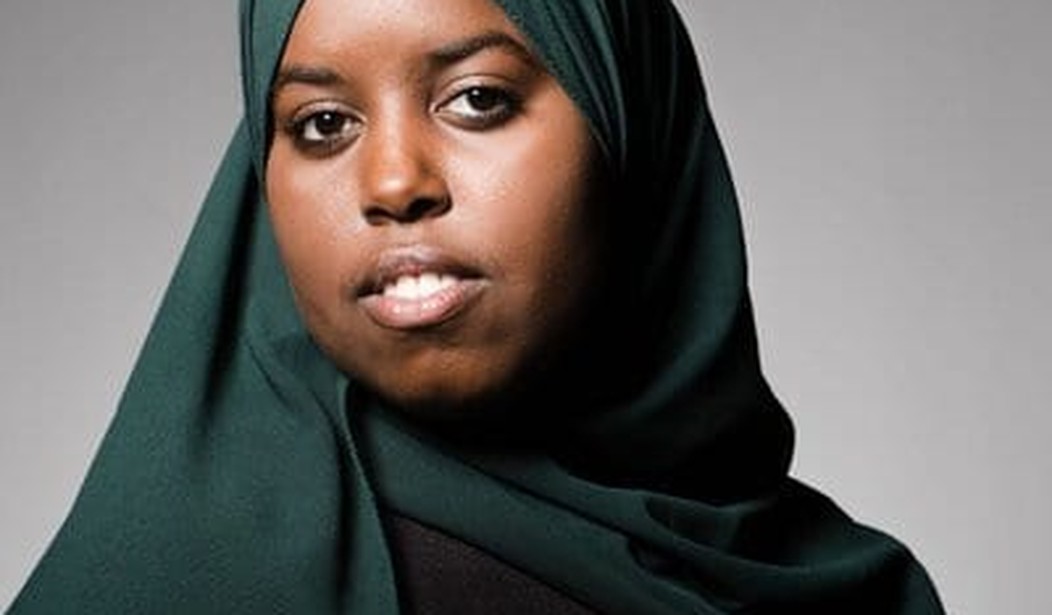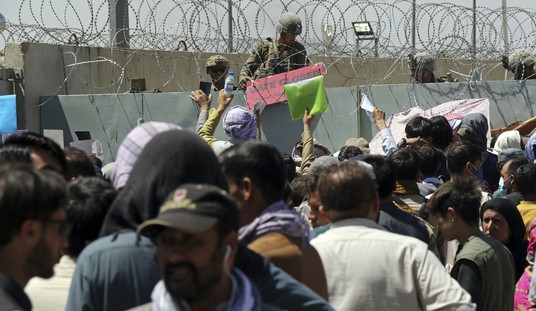I only met him in person once, many years ago. We met for beers in downtown Oslo. We didn’t agree on everything: among other things, he had an irrational hostility toward the United States, which I put down, in part at least, to the fact that he had never set foot in the U.S. and that his English was surprisingly poor (we spoke in Norwegian), so that his image of my country was shaped largely by the mainstream Scandinavian media and by various sources in his native tongue, Arabic. But never mind. What mattered was that he loved freedom, hated jihadist Islam, and was brave enough to say so. His name was Walid al-Kubaisi. Educated as a civil engineer at the University of Baghdad, he came to Norway as a political refugee in 1981, went on to write several books and many articles about Islam and the West, and died this past July at the age of sixty.
Walid came to Norway at a time when the Muslim population of Norway was tiny and the Norwegian cultural elite was still willing to lend a respectful ear to a severe criticism of Islam by someone who had grown up as an adherent of the faith. Kubaisi was nothing if not critical. He condemned the hijab. He recognized Tariq Ramadan as a two-faced snake who was out to Islamize Europe. He saw through the dissimulations of the Muslim Brotherhood. In 2010, after a number of other Norwegians with Muslim backgrounds had begun to make high-profile careers for themselves as politicians and commentators, he warned that despite their images as democracy-loving bridge-builders, several of the most prominent of them were nothing more or less than Trojan horses for jihadism.
Well, Walid is dead now — and those Trojan horses are still alive. And while there don’t seem to be any new Walids on the horizon — the Norwegian media are no longer as open to such voices as they they used to be — there are plenty of new Trojan horses. One of them is a hijab-wearing young woman named Sumaya Jirde Ali. Born in 1997, she came to Norway from Somalia at age six. Two years ago, she stepped onto the national stage with an opinion piece in Aftenposten. She had just been in London, and was impressed by the “diversity” on display there. By contrast, she charged, Norway is way behind. “During the last few decades Norway has become more multicultural,” she wrote. “Why is it that in 2016, there aren’t more non-ethnic Norwegians in advertisements, movies, magazines, and in government agencies?” She maintained that “for integration to work, it must go both ways. It’s not enough for immigrants to adapt.”
No, there was nothing new about it. By 2016, her argument was an embarrassing cliché, a platitude. But in 21st century Norway, the cultural elite eats this sort of thing up, at least if it’s under the byline of a teenage girl in a hijab. If Sumaya had written a piece about how grateful she was to have been brought up in a free and prosperous Norway rather than in her native Somalia, would Aftenposten even have published it? No, too sappy. And anti-African! What if she’d submitted an article critical of female genital mutilation in her community? Or honor killing? No, that’s old hat. But her familiar whining about insufficient Muslim visibility in today’s Norway was right up their alley.
Sumaya wrote more pieces. Last year came an item headlined “Muslim on your premises? Never.” Complaining that her devotion to Islam is too often associated in Norway “with something negative,” she wanted readers to know that “I am not your socially constructed phenomenon. I am myself.” She insisted that her wearing of a hijab has nothing to do with obedience, that she is “not obliged to follow or like all the rules/norms of my own religion,” and that the Koran teaches all this. Which led one to wonder: does she really believe this, or is she consciously trying to present infidel Norway with a picture of Islam that makes this totalitarian religion look like Episcopalianism?
Whatever the case may be, Sumaya has been handsomely rewarded for her slight, shallow, and (frankly) semi-literate writings. Last year the local newspaper in her home city, Bodø, named her “Bodø Resident of the Year,” calling her “an incredibly important voice for very many young women.” In January of this year she won the Zola Prize, presented annually to “people who openly and fearlessly have uncovered or opposed threats to human value, democracy, and the rule of law in Norway.” Jury foreman Karl Eldar Evang compared her to James Baldwin, while noting that another commentator had likened her to the 1950s actor James Dean. Since there is no conceivable comparison between Sumaya and James Dean, presumably this was simply one idiot’s way of saying that Sumaya is cool.
The awards kept coming. A month after Sumaya picked up the Zola Prize, the Oslo weekly Natt & Dag named her “Voice of the Year.” In an interview, she told Natt & Dag that if she were the prime minister of Norway her first action would be to cut out government support to Human Rights Service — a small Oslo think tank that has carried out important research on such subjects as forced marriage, female genital mutilation, and honor killings in the Muslim community. Upon being awarded the Natt & Dag prize at a public ceremony, Sumaya shouted “Fuck Listhaug!” The reference was to Sylvi Listhaug, the popular ex-integration minister who, among other politically incorrect statements, had expressed concern that the Swedish phenomenon of “no-go zones” would spread to Norway. This was not the first time Sumaya had publicly used the four-letter English-language word: she had previously tweeted “Fuck diplomatic debate: Fuck the police.”
Last month, Morgenbladet, a political and cultural weekly along the lines of the New York Review of Books, made Sumaya a regular columnist. She used her first column to express her anger at the fact that Helge Lurås, editor of the news website Resett, had been invited by the editor of the Communist newspaper Klassekampen to take part in a panel discussion. Lurås is alarmed about the Islamization of Europe, and he founded Resett because the mainstream Norwegian media, when not ignoring this issue, whitewash it. In Sumaya’s view, this puts him beyond the pale. “These are dangerous opinions. Dangerous people,” she explained. “I’m more preoccupied with minority groups’ right not to be subjected to this kind of witch hunt than with extreme groups’ alleged freedom of speech.”
In fact, Resett, far from waging any “witch hunt,” has, since its founding last year, been a frequent target of vile, unfair abuse — the usual charges of racism, xenophobia, and so on. Despite his long career as an international security expert and policy advisor for the Norwegian Armed Forces, the Norwegian Institute of International Affairs, and the Norwegian Centre for International and Strategic Analysis, Lurås has been dismissed, mocked, and savaged by the same sort of bien pensant Oslo types who have showered the potty-mouthed Sumaya with praise and prizes.
There’s more. Earlier this month, Cultural Minister Trine Skei Grande awarded Sumaya yet another accolade: the Words on the Borderland Prize. The jury described Sumaya as a “fearless voice in a climate that is constantly more xenophobic and hostile to free expression.” How curious to give such an honor to someone who believes in silencing her ideological opponents and who has referred to their “alleged freedom of speech”! Finally, this fall, Aschehoug, arguably Norway’s most prestigious publisher, will issue Sumaya’s second book of poems. A sample of her verse: “My screams causes the mountains of tradition / to tremble / My self-esteem startles the thunder / Nothing is more dangerous than / a woman who is one / with herself.”
So it goes. Walid al-Kubaisi, a champion of freedom and an intelligent, articulate, reflective, and truly courageous critic of the religion of his birth, is dead. In his place we have the likes of Sumaya Jirde Ali, who repeatedly spits in the face of the presiding institutions of the country that gave her and her family shelter; who, although she would surely be executed by many an Islamic government for her idiosyncratic take on Islam (and her foul language), holds up that religion as something to be admired; and who, while fully taking advantage of the freedoms she enjoys in the West, doesn’t hesitate to demand that they be denied to others, including people whose ancestors fought and died for those freedoms.
Then again, even though she’s a lousy writer and doesn’t have a real idea in her head, you can’t exactly call her stupid. She knows what she’s doing. Her whole act is brilliantly calculated. She seems to have known from the start that if you’re a Muslim girl in Norway nowadays, you can become a superstar by doing — well, precisely what she’s been doing. The more you slam the establishment for its purportedly terrible treatment of you, the more they’ll slobber all over you, give you awards, and celebrate you as a role model for young people. These are the culturally suicidal times we live in, and this is the kind of mendacious mediocrity whom our betters would have us look up to as a hero.









Join the conversation as a VIP Member